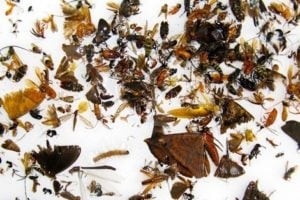university of east anglia
Blocking rogue gene could stop the spread of most cancers
Scientists at the University of East Anglia (UEA) have discovered a rogue gene which — if blocked by the right drugs — could stop cancer in its tracks.
Published today by the journal Oncogene, the discovery is a breakthrough in our understandi…
Bioactive compounds in berries can reduce high blood pressure
Eating blueberries can guard against high blood pressure, according to new research by the University of East Anglia (UEA) and Harvard University.
High blood pressure — or hypertension — is one of the major cardiovascular diseases worldwide. I…
Study shows garlic could protect against hip osteoarthritis
Researchers at King’s College London and the University of East Anglia have discovered that women who consume a diet high in allium vegetables, such as garlic, onions and leeks, have lower levels of hip osteoarthritis.
The findings, published in …
New tool in the early detection of bowel disease
An international team of researchers led by the University of East Anglia (UEA) have developed a new kind of endoscope to aid the early detection and diagnosis of inflammatory bowel disease.
The Confocal Laser Endomicroscope (CLE) contains a powe…
Pioneering study reveals UK biodiversity hotspot
Scientists are calling for radical new approaches to conservation following the first biodiversity audit of its kind.
Led by the University of East Anglia (UEA), with partners Natural England, the Forestry Commission, Norfolk and Suffolk Biodivers…
Global CO2 emissions back on the rise in 2010
Global carbon dioxide (CO2) emissions — the main contributor to global warming — show no sign of abating and may reach record levels in 2010, according to a study led by the University of Exeter (UK).
The study, which also involved the Univers…
Regular exercise reduces large number of health risks including dementia and some cancers
People who take regular exercise could reduce their risk of developing around two dozen physical and mental health conditions – including some cancers and dementia – and slow down how quickly their body deteriorates as they age.
An extensive resea…
30 years on in the epicenter of the African AIDS epidemic
The impact of 30 years of HIV on an area once described as the epicentre of the African AIDS epidemic will be discussed at a lecture hosted by the University of East Anglia (UEA) in London this month.
Progressive declines in agricultural productio…
Eating broccoli could guard against arthritis
Scientists at the University of East Anglia (UEA) are launching a groundbreaking new project to investigate the benefits of broccoli in the fight against osteoarthritis.
Initial laboratory research at UEA has found that a compound in broccoli cal…


